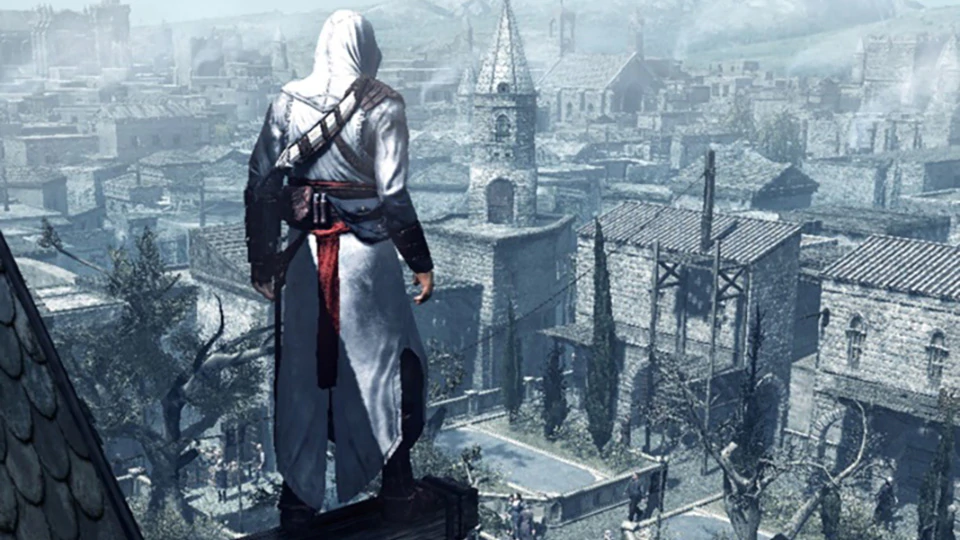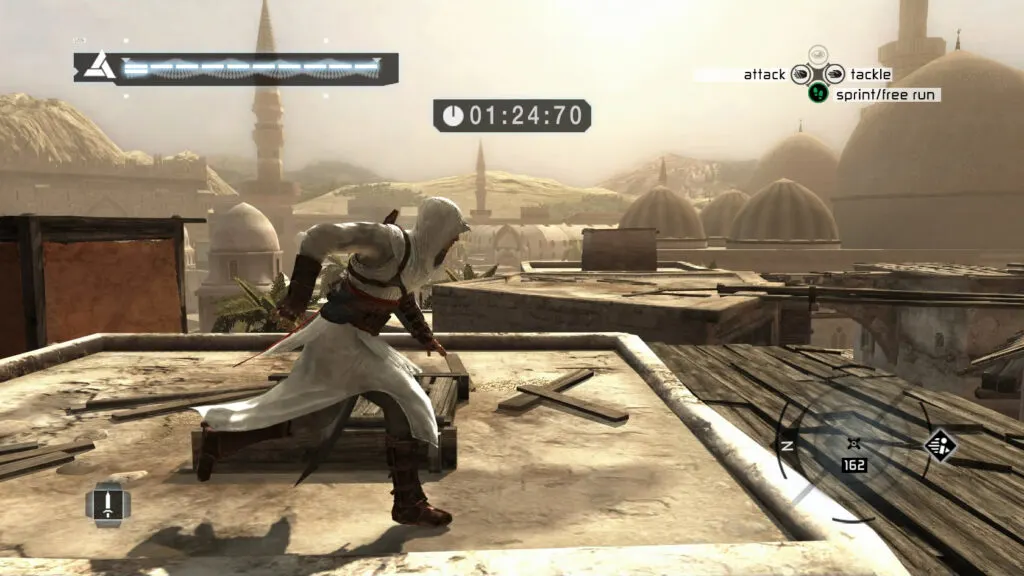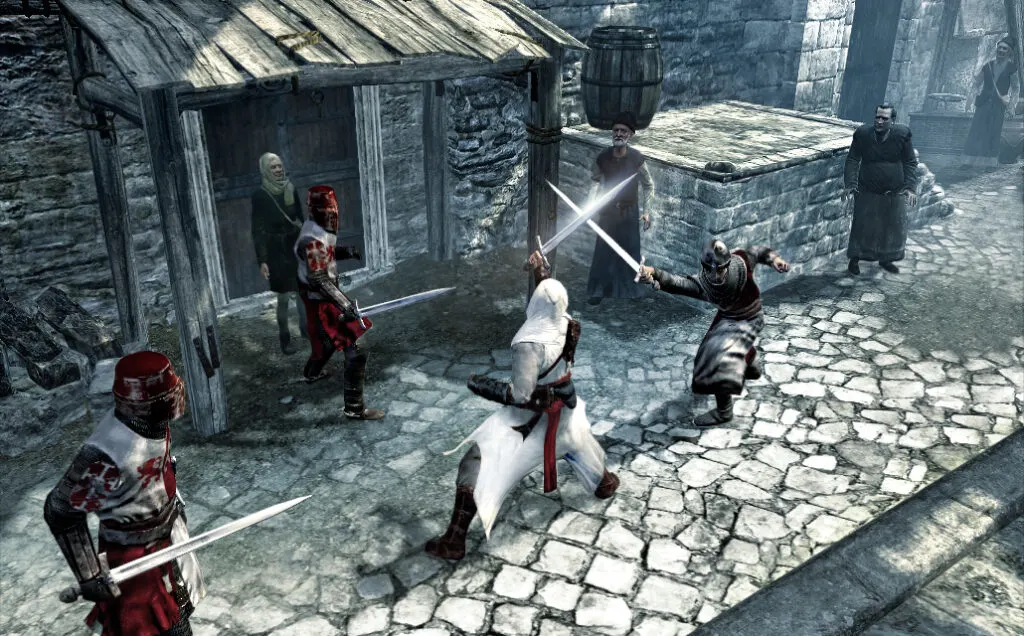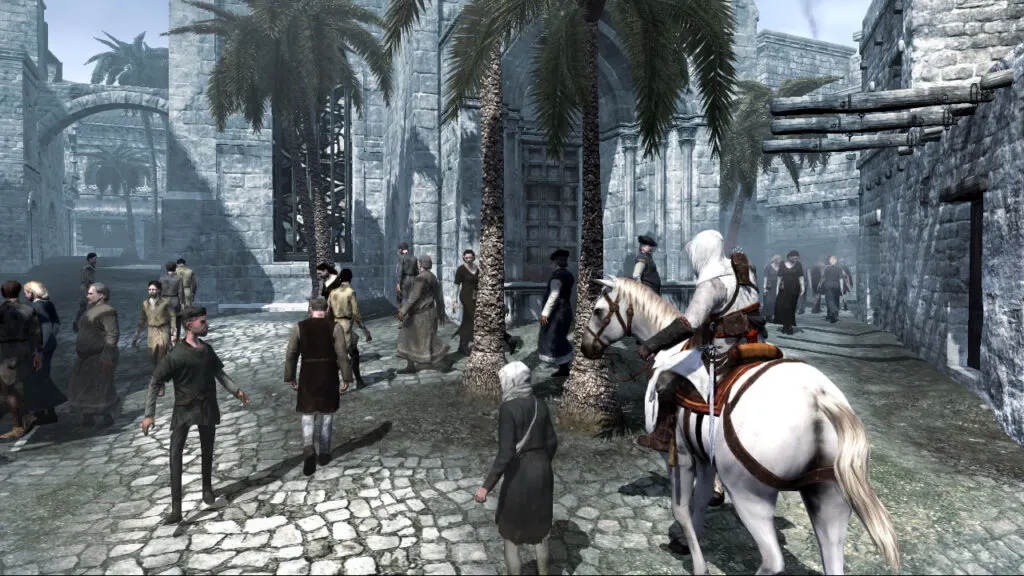Assassin's Creed
Pros
- Detailed historical setting that immerses players into the world of the medieval Middle East.
- Strategic gameplay that combines stealth tactics with action-adventure.
- Rewarding mission system that offers tangible benefits like enhanced weaponry and abilities.
- Social Status Icon provides an interesting mechanic to maintain stealth and manage threats.
- Engaging side missions that add depth to the main storyline.
Cons
- AI behavior can be somewhat predictable, reducing the challenge in stealth scenarios.
- Some may find the game's pacing slow, particularly during eavesdropping and interrogation missions.
- Although the three cities are richly detailed, the world may feel limited to some players.
- The game could benefit from more diverse combat options.
- The narrative could be complex for players unfamiliar with the franchise's lore.
Blurring the lines between history and fiction, Ubisoft’s Assassin’s Creed redefined the action-adventure genre upon its release. The game masterfully combines stealth tactics, gripping narrative, and immersive world-building. It invites players into a meticulously reconstructed medieval setting where they stealthily navigate through sprawling cities, infiltrate enemy lines, and unfold a plot shrouded in mystery and conspiracy.
- Developer: Ubisoft Montreal
- Publisher: Ubisoft
- Release Date: 2007
- Platforms: PlayStation 3, Xbox 360, Microsoft Windows
- Official Website: https://www.ubisoft.com/en-us/game/assassins-creed/




Gameplay and Storyline
In Assassin’s Creed, players delve into the life of an assassin during the Crusades. From the onset, the game challenges you with completing missions that unfurl the narrative thread. After departing from a central hub, you traverse to three historically rich cities – Jerusalem, Damascus, and Acre, seeking missions from local agents who furnish critical information about targets and assign additional tasks.
These supplementary assignments include eavesdropping, pickpocketing, and interrogation, often demanding surgical precision and a keen awareness of the environment. Moreover, myriad side objectives add depth to the gameplay, such as assisting distressed citizens, engaging in rooftop parkour to survey cities, or hunting down Templars. These activities, while non-essential to the main storyline, enrich the gaming experience and offer valuable rewards.
Success in missions culminates in tangible gains like enhanced weapons or augmented abilities, motivating players to experiment with different targets and strategies. A novel feature, the Social Status Icon, offers real-time updates about the area’s alert status, compelling players to blend in with crowds, engage in benign activities or tactfully execute stealth assassinations.
Mechanics and Systems
Assassin’s Creed employs a health system intertwined with gameplay mechanics. Maintaining optimal health allows usage of Eagle Vision, a powerful tool that color-codes visible characters based on their alignment, aiding players in identifying friends, foes, and quest targets.
Unleashing chaos in public, like engaging in combat or scaling buildings, can alert guards and incite them to pursue you. Mastering the art of blending in and reducing this alertness level becomes a crucial aspect of gameplay, facilitating a cat-and-mouse dynamic that keeps players on their toes.
The game’s intricate mechanics and adaptable gameplay cater to a broad spectrum of players, balancing the appeal between casual and hardcore gamers. Its blend of stealth, action, and rich historical settings continually engrosses players in a captivating storyline.
System Requirements
Minimum Requirements
- Memory: 1 GB
- Graphics Card: NVIDIA GeForce 6600
- CPU: Intel Core 2 Duo 1.8 GHz
- File Size: 8 GB
- OS: Windows XP / Vista
Recommended Requirements
- Memory: 2 GB
- Graphics Card: NVIDIA GeForce 6800
- CPU: Intel Pentium D 2.6 GHz
- File Size: 8 GB
- OS: Windows XP / Vista


